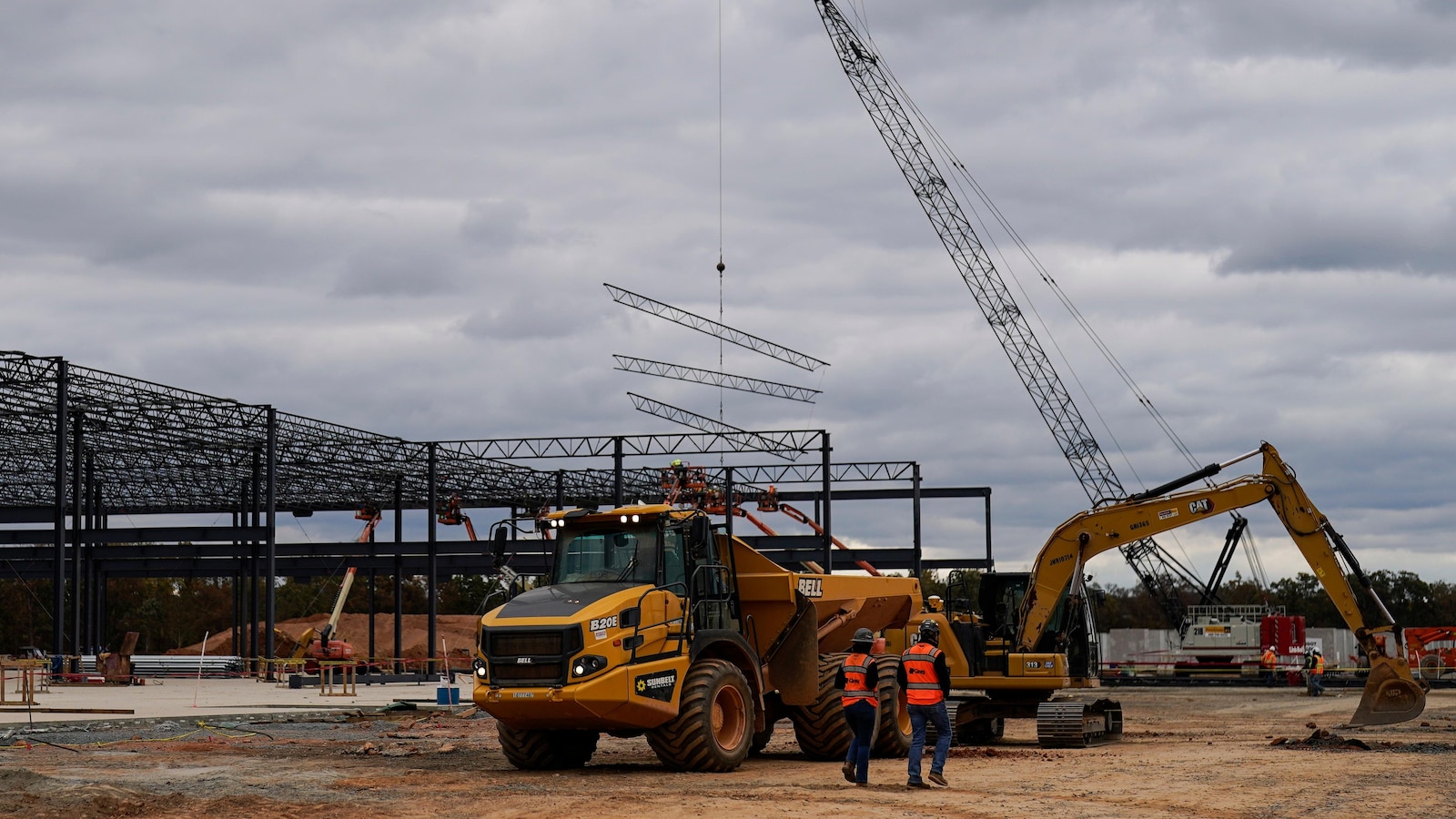ATLANTA — The federal government is making its first loan to a crystalline silicon solar plant, loaning $1.45 billion to support a South Korean company’s bid to build up key parts of the solar supply chain inside the United States.
The loan from the U.S. Energy Department, announced Thursday, will be key to funding a $2.2 billion complex that Qcells, a unit of South Korea’s Hanwha Group, is building. The company plans to take polysilicon refined in Washington state and make ingots, wafers and solar cells — the building blocks of finished solar modules — in Cartersville, Georgia, northwest of Atlanta.
President Joe Biden’s Inflation Reduction Act, besides offering a extra tax credit on American-made solar equipment, lets manufacturers earn incentives for every unit of polysilicon they refine and every wafer, cell and module they make.
“This loan is special, because it’s one of the first facilities where we’re not just making modules, but we’re making cells and wafers as well,” Jigar Shah, director of the Energy Department’s loan programs, said in a telephone interview Wednesday with The Associated Press. “So we’re bringing a lot more of the supply chain into the United States.”
Qcells in April began assembling modules in part of the complex, which will have a capacity of 3.3 gigawatts of solar panels each year. The plant in Cartersville currently has about 750 employees and is projected to have 2,000 when complete. Qcells says it’s on track to complete the wafer and cell portions of the plant by December.
The company also has a $630 million plant in Dalton, farther northwest in Georgia, with a capacity of 5.1 gigawatts a year. That 1,800-employee plant was built without government loans. The company imports the cells for the Dalton plant.
The Cartersville plant would be the largest ingot and wafer plant built in the United States, the Energy Department said. Between the Dalton and Cartersville plants, Qcells will produce enough solar panels to power nearly 1.3 million homes per year, reducing carbon dioxide emissions from power generation.
Microsoft Corp. has contracted to buy a significant portion of the Cartersville plant’s output over eight years.
Qcells must meet certain conditions for the loan, and Marta Stoepker, a company spokesperson, said Qcells is confident that it will meet the requirements.
“The loan that we’re getting is going to be massively critical for us to stay on track with our goal of really onshoring the supply chain and making it in America,” Stoepker said.
Still, the company said the Biden administration needs to stay committed to supporting domestic solar manufacturing in the face of a continuing surge of cheap imports from Asia, which has caused solar panel prices to fall. Qcells and other manufacturers are pushing for tariffs to protect against what they say is below-cost dumping by companies in Cambodia, Malaysia, Thailand and Vietnam that have ties to China. Stoepker said the Biden administration also could help by refining guidance on the tax credit bonus for American-made solar components.
Shah defended the administration’s efforts, saying supports for the industry are “providing a lot of stability for folks to invest.”
He said the United States is on track to have a reliable domestic supply chain capable of meeting most of its solar panel needs.
“The domestic demand for solar modules in 2026 is expected to be around 50 gigawatts. We’re expecting to produce about 40 gigawatts in 2026,” Shah said. “So that means 80% of the modules that we deploy in the United States in 2026 is expected to be domestic.”
U.S. Sen. Jon Ossoff, a Georgia Democrat who has been the foremost cheerleader for the Biden administration’s support of clean energy projects in the state, said the loan will “continue growing our economy and strengthening American energy independence.”

